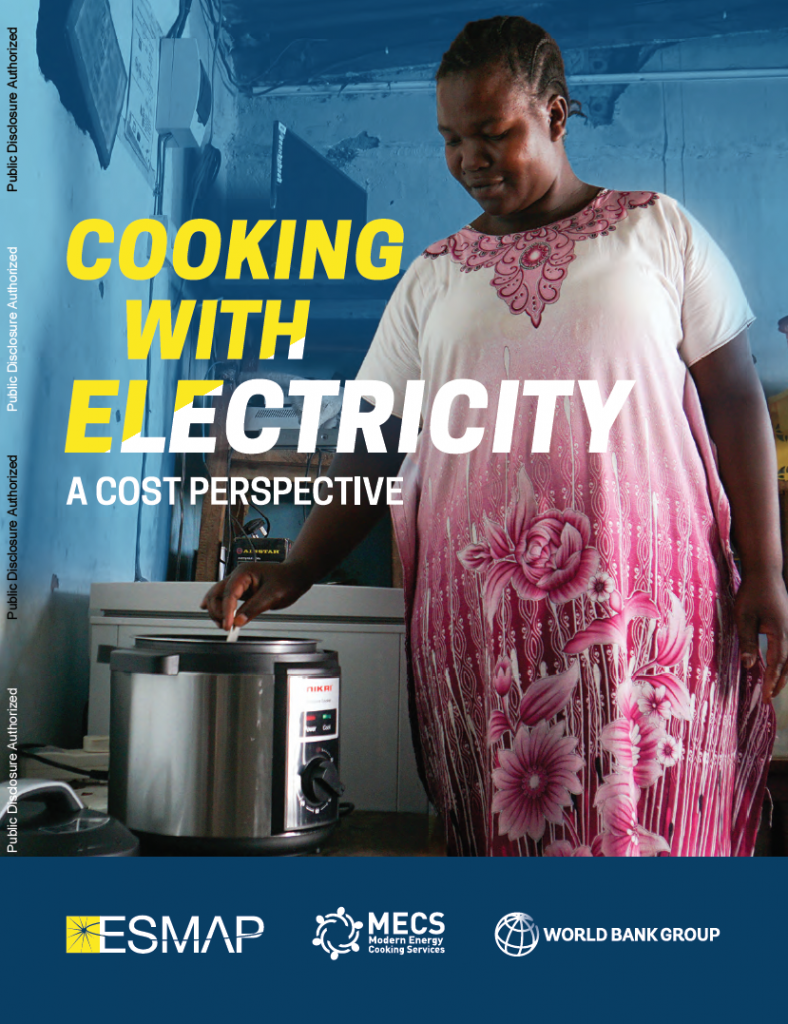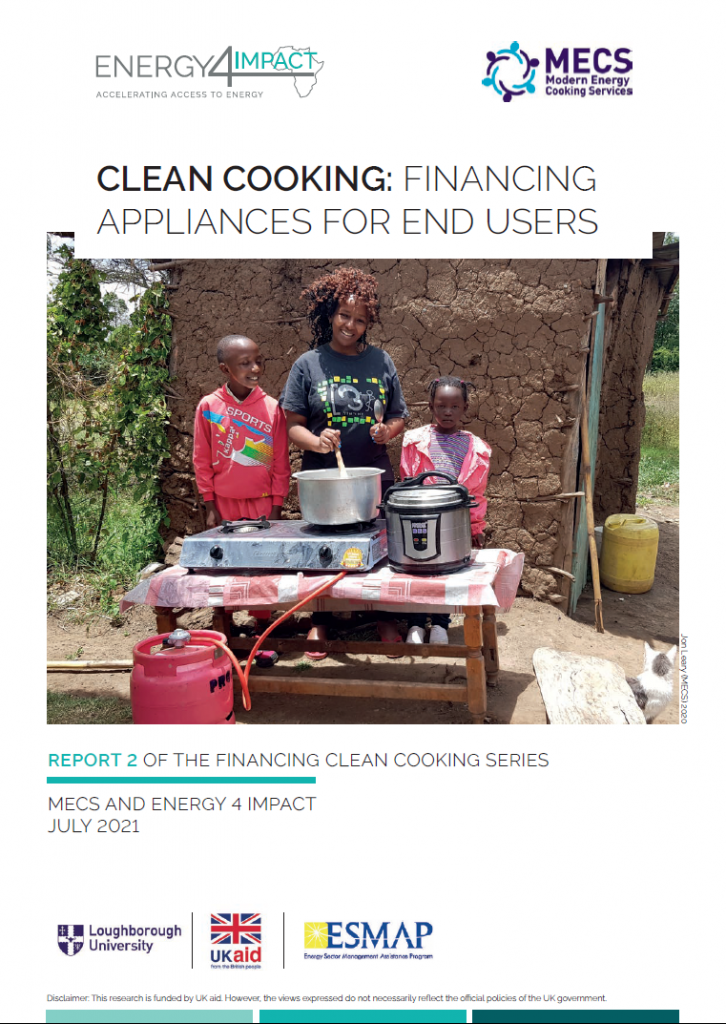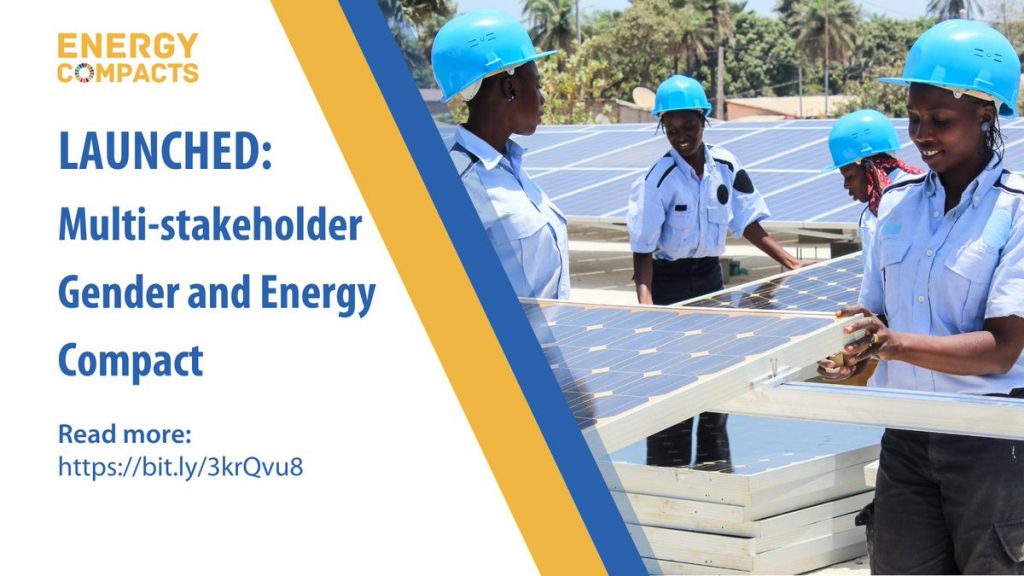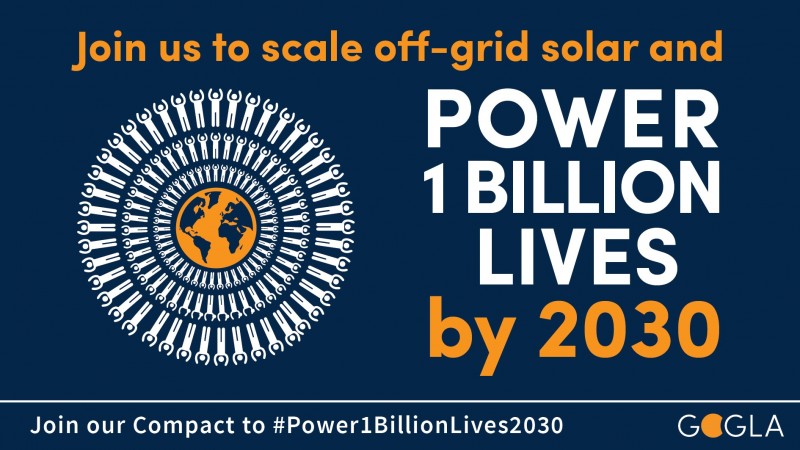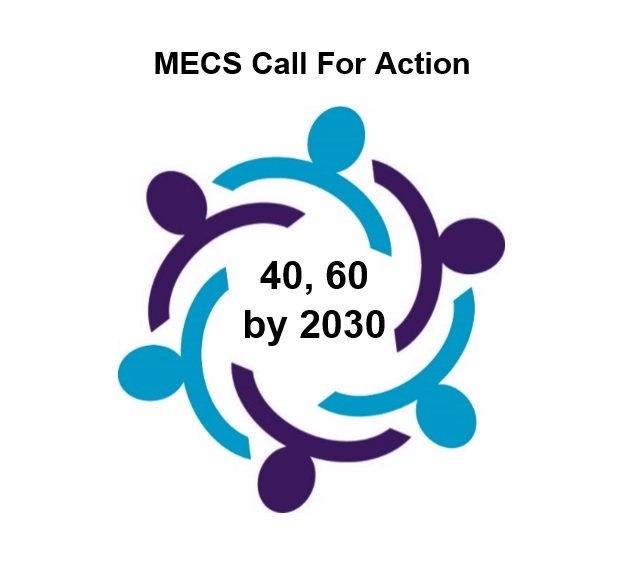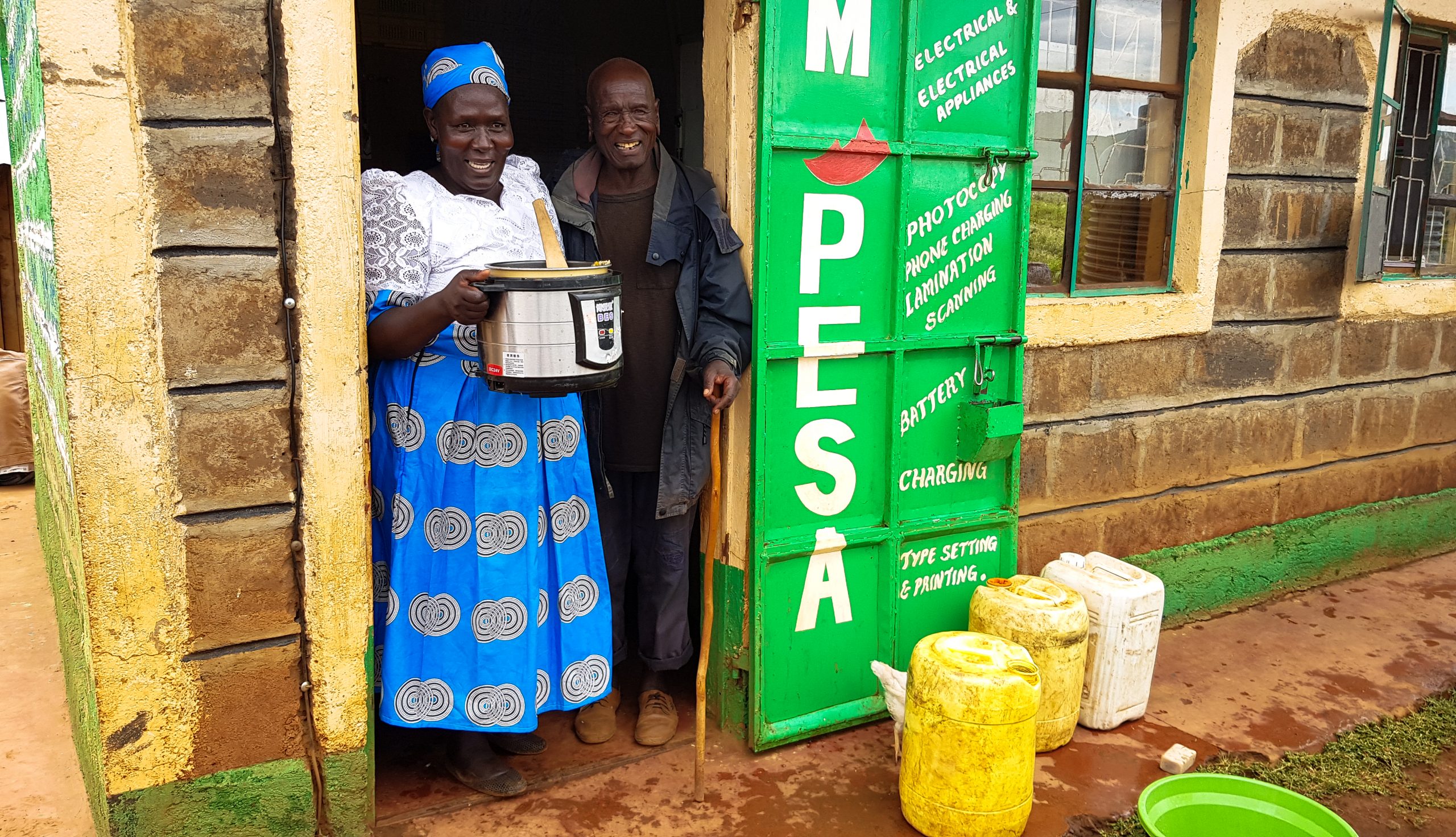
- Date
- 23rd September 2021
- Categories
By Dr. Joni Cook (Loughborough University).
The United Nations High-level Dialogue on Energy (HLDE), to be held during September 2021, aims to promote the implementation of the energy-related goals and targets of the 2030 Agenda for Sustainable Development. The Dialogue should raise ambition and accelerate action towards the achievement of the Sustainable Development Goal (SDG) 7 targets by catalysing innovative solutions, investments and multi-stakeholder partnerships in support of the Decade of Action to deliver the SDGs and accelerate the implementation of the Paris Agreement.
The global activities of the MECS programme have built on the evidence base to provide a strong case advocating for a global transition to modern energy cooking services. In particular, we emphasise that cooking with electricity is not only cost-effective but also has tremendous potential for scale up if integrated into energy planning and policy, making this a viable solution for consumers and private sector actors such as investors and utilities.
We invite the international community to incorporate our key messages of the evidence base, as outlined below, in policies, frameworks and actions in order to urgently accelerate a just transition to access to modern energy for all:
- Cooking with electricity is a viable and cost-effective modern energy cooking solution
A growing body of evidence is showing that, in many settings, modern energy cooking services such as electric cooking are already cost-effective alternatives to cooking with biomass. The ESMAP report conducted in partnership with MECS, entitled ‘Cooking With Electricity: A Cost Perspective’ outlines the findings from 5 case studies comparing the current and projected costs to the consumer of a range of electric cooking (eCooking) solutions with the costs of cooking with widely-used fuels in each context. The use of energy-efficient electric cooking appliances challenges the widespread perception that electricity is too expensive for cooking. The analysis shows that eCooking can already be a cost-effective option in a variety of settings and is likely to become increasingly effective in the near future.
2. The cost effectiveness of transitioning to clean cooking for the consumer can be further increased through access to innovative financing mechanisms
Finance schemes such as various types of user payment models and consumer credit can push the costs to the consumer of transitioning to modern energy cooking down even further. Launched by Energy 4 Impact and MECS, the Financing Clean Cooking report series aims to facilitate the transition to clean cooking through financing and investment. The series is targeted at a diverse range of public and private stakeholders in clean cooking, including NGOs, donors, investors, and suppliers. The second report in the series provides a snapshot of the state of end user financing for clean cooking. It looks at the pricing of different appliances and outlines how the current market is dominated by cash sales. It explains why consumer credit is important and examines emerging financing models such as automated pay-as-you-go and utility-led financing. Finally, it calls upon donors to make interventions to scale up appliance financing for clean cooking. Further published reports in the series explore clean cooking concessions in displacement settings and the potential for crowdfunding as a tool for scaling up clean cooking. Future reports to be launched in late 2021 focus on results-based financing (RBF) and financing landscapes for clean cooking (to be released via the MECS website).
3. Scale up of electric cooking is both viable and urgently needed in many sub-Sahara African and ASEAN countries
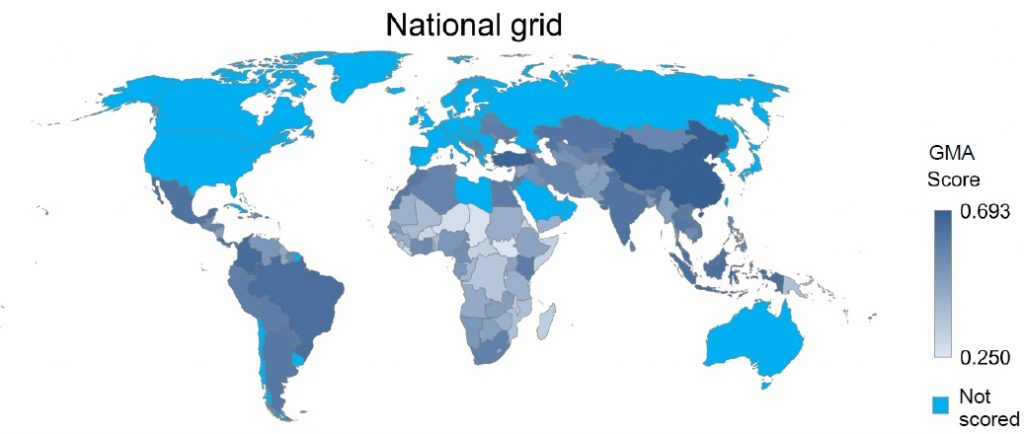
Cooking with electricity is not only cost-effective, but also has tremendous potential for scale up if integrated into energy planning and policy. Led by the University of Strathclyde MECS team, a Global Market Assessment (GMA) for electric cooking has been conducted in order to identify where the opportunities and challenges for a scale up of electric cooking lie. The GMA has drawn on the experience of a range of stakeholders to identify the key factors which influence the viability of a scale up of electric cooking. Where possible, these factors have been represented by publicly available datasets, weighted as to their relative importance and combined into a score for 130 countries in the Global South. Findings show that scale up of electric cooking is both viable and urgently needed in a number of countries. Countries with high GMA scores and large proportions of people already paying significant amounts for polluting fuels (such as kerosene and charcoal) are where a transition to electric cooking is most needed as well as being viable and affordable. This includes China, Malaysia, Thailand, Laos, Kenya, Myanmar, Philippines, Nigeria, Tanzania, Uganda and Rwanda. The scale of the opportunities for transition is particularly large in China and Nigeria, as both countries have high GMA scores and very large absolute numbers of people paying for polluting cooking fuels.
4. Gender equality and women’s empowerment are fundamental to achieving an inclusive and just transition to modern energy cooking services and sustainable energy for all
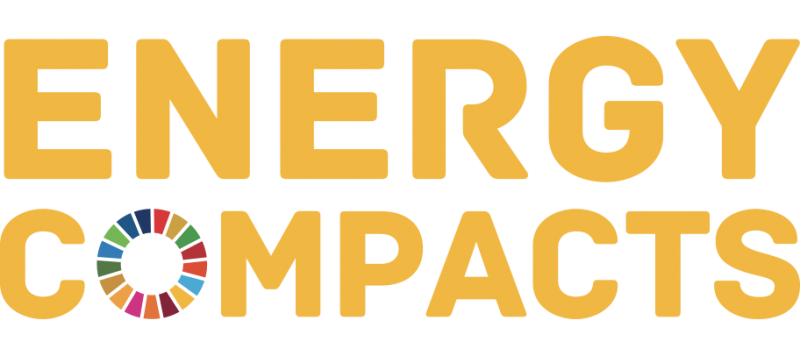
The MECS programme takes strides towards achieving gender equality by changing the narrative on clean cooking, and spurring global policy leaders to address clean cooking, the global climate crisis, and access to modern energy as an integrated policy imperative. In continuation of our collaborative efforts towards the global push for gender equality and women’s empowerment in energy transitions, MECS has signed up the multi-stakeholder Gender and Energy Compact coalition initiated by ENERGIA International Network on Gender and Sustainable Energy (ENERGIA) Global Women’s Network for the Energy Transition (GWNET) and the United Nations Industrial Development Organization (UNIDO), to be officially launched at HLDE. Along with other global actors who have signed up for this Compact, MECS has committed to follow the Compact’s guiding principles to support increased the acceleration of and ambition to enhance gender equality and women’s empowerment to accelerate a just and inclusive sustainable energy transition.
In support of the overarching urgent need to provide access to sustainable, modern energy for all, MECS has signed GOGLA’s ‘Power 1 Billion Lives by 2030’ Energy Compact. The Compact calls for scaling energy access to reach a billion people with off-grid solar by 2030: placing those currently living in energy poverty at the forefront of a fairer, more equitable, energy transition.
5. We call on the international community to integrate modern cooking in modern energy access interventions, using the principles of the ’40,60 by 2030’ challenge.
2021 is a potentially momentous year where governments, private sector, civil society and others will take stock on the progress and future actions on achieving universal energy access for all (SDG 7) and reducing global greenhouse gas emissions as set out in the Paris Agreement. Our engagement with these processes involved presenting research evidence and promoting the aspiration including cooking energy in modern energy access interventions.
At a UN Ministerial-level thematic forum side event held on 23 June to promote this inclusion of cooking energy in modern energy access, Sheila Oparaocha (ENERGIA) and Kandeh Yumkella (Co-chair of the AEF Strategy Group on Energy, and former UN Under-Secretary-General and the first Special Representative of the Secretary-General for Sustainable Energy for All) announced a rallying call to ensure that existing and future modern energy access interventions are inclusive of its use for cooking (SDG7.2) and take into account low carbon solutions (listen to the recording of the closing remarks above). The 40,60 by 2030 challenge builds on work undertaken over the last two to three years by MECS, ESMAP, CCA and others to showcase that electric cooking is becoming more affordable and available in Low and Middle Income Countries. The challenge has two major components, which are an intermediate step in the just energy transition towards a net-zero carbon world by 2050. It calls for 40% for all households connected to grid or off-grid electricity to be using it for cooking by 2030, and 60% of households using modern energy for cooking to be generated from low-carbon sources by 2030.
………………………………………………………..
Featured image: Members of the Lomolo B Solar Nano-grids community electrification project (Nakuru County, Kenya) experiment with a new energy service: electric cooking (Jon Leary, MECS).
